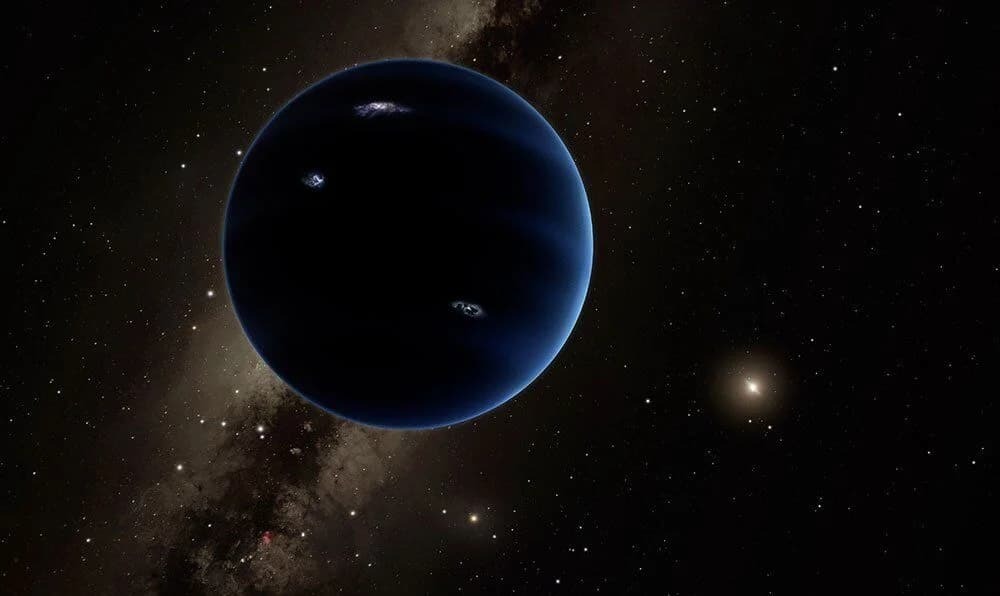Sunday Special: Scientists Uncover Possible New Planet

For nearly two decades, scientists have explored the mysteries of our solar system, searching for answers about its complex makeup. Recent findings now suggest the possibility of a ninth planet, sparking excitement among astronomers and space enthusiasts alike. Such a discovery could reshape our understanding of the solar system’s outer boundaries.
The search for “Planet Nine” has intrigued many since Pluto’s reclassification left a gap in our planetary lineup. With the use of advanced technology, researchers are piecing together evidence that suggests another world may be hiding in the distant reaches of our cosmic neighborhood.
Unveiling the Mystery
In a significant breakthrough, scientists have identified visual clues pointing to a hidden ninth planet on the outer edges of our solar system. They analyzed two infrared sky surveys taken 23 years apart, which provided compelling insights. However, further studies are needed to confirm these findings.
This potential new planet has been a topic of interest since Pluto lost its status as the ninth planet. Its existence could answer longstanding questions about gravitational effects observed in distant celestial objects. The journey to finding it is as intriguing as the mystery itself.
Nuclear Fusion’s Big Step
In parallel news, fusion energy has reached new heights with the construction of the world’s most powerful magnet. This development is crucial for facilitating nuclear fusion, a process that mimics the sun’s energy production.
The creation of the magnet is a milestone. Now, ITER’s construction is moving faster than ever. Yet, the promise of clean, limitless energy remains decades away. Despite the wait, this progress is a beacon of hope for future energy solutions.
Turning Raindrops into Power
Scientists are exploring natural phenomena to create sustainable energy solutions. Their latest innovation turns raindrops into electrical power, using narrow tubes to generate substantial electric charges.
This novel method could revolutionize energy production, especially in rainy regions. By collecting rainwater and converting it into electricity, we can harness clean energy efficiently. It’s a promising stride towards eco-friendly energy sources.
A Fresh Take on Algebra
Mathematics has often puzzled even the brightest minds. Recently, Professor Norman Wildberger made headlines by solving algebraic challenges deemed unsolvable since the 1800s.
Instead of traditional methods, Wildberger uses new sequences and power series to address infinity’s complexities in equations. This breakthrough offers fresh perspectives and solutions for problems once thought insurmountable.
Wildberger’s methods could lead to a deeper understanding of mathematical principles. His innovative approach challenges conventional wisdom and could inspire future researchers to think outside the traditional mathematical box.
Technological Innovations of the Week
This week also saw a surge in technological advancements. From AI assistants that streamline daily tasks to portable ultrasonic devices transforming everyday chores, innovation is at an all-time high.
Noteworthy inventions include AI wearables that summarize conversations and reminders, and hybrid cameras combining retro look with modern tech. These gadgets highlight the blend of functionality and style in today’s technological growth.
Revolutionizing Personal Transportation
Social media buzzed this week with videos showcasing a new type of all-terrain skateboard. Its unique design swaps traditional wheels for advanced track systems, allowing smooth rides across surfaces like gravel, dirt, and even stairs.
This skateboard represents a blend of cutting-edge technology and adventure. It opens new possibilities for personal transport, offering excitement and practicality to thrill-seekers everywhere.
As people seek more sustainable and versatile transport options, innovations like this skateboard are likely to gain popularity. They reflect a trend towards personalized and eco-conscious mobility solutions.
Medical Miracles: Heart and Vision
In a medical first, a tiny artificial heart helped a young boy breathe independently, offering hope for children awaiting heart transplants. This achievement highlights the potential of medical technology to improve lives significantly.
In another development, self-adjusting glasses that adapt to your vision needs have been funded. These intelligent spectacles could eliminate the need for multiple pairs, providing convenience and functionality.
Such advancements in medical technology exemplify the incredible potential of science to transform health care. The innovations in artificial hearts and adaptive eyewear point to a future of personalized medicine.
Histories and Mysteries: Fashion and Space
UK researchers aim to create luxury handbags using lab-grown T-Rex leather. This blend of history and fashion could lead to sustainable alternatives to traditional materials.
Meanwhile, the concept of massive voids in space, like the Boötes Void, challenges our understanding of the universe. These empty regions span billions of light-years, adding to the list of cosmic mysteries.
Such diverse endeavors in both fashion and space highlight human creativity and curiosity. They show how exploring the unknown drives innovation in unexpected fields.
The Peanut Allergy Breakthrough
New approaches to treating peanut allergies show promise. Through gradual exposure therapy, adults are now tolerating peanuts, offering new hope for allergy sufferers.
In trials, participants began with tiny doses, gradually increasing their tolerance. This success marks a significant step in allergy treatment, potentially transforming life for millions.
The implications of this breakthrough are vast. As scientists refine the treatment, it could become a widespread solution, offering freedom from a life-threatening risk.
The Future of Space Exploration
With each discovery, our urge to explore the cosmos grows stronger. Finding “Planet Nine” could redefine our celestial maps and ignite new explorations beyond our current frontiers.
The prospect of uncovering a new planet is not just a scientific milestone. It inspires us to continue exploring the cosmos and pushes the boundaries of what we know about our universe. As research progresses, we step closer to a more comprehensive understanding of our solar neighborhood.





